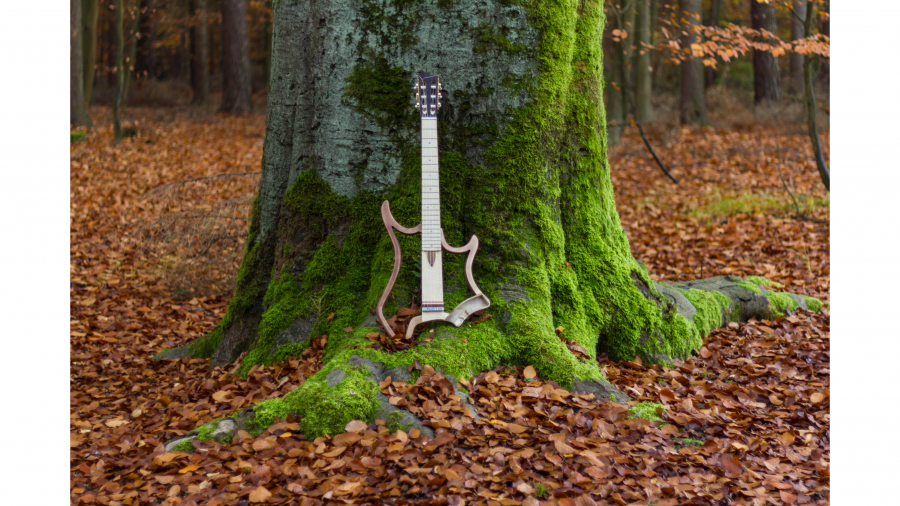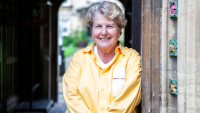
Online registration required ("Book" above).
A talk by founder of OpenGuitar, Dr Fernando Bravo.
OpenGuitar is a project aimed to support STEM education (science, technology, engineering and math) for children and teenagers from disadvantaged backgrounds. The OpenGuitar workshops promote STEM education through an open-source experimental classical guitar, which can be assembled in small workshops. The instrument building process is designed as an engaging and creative activity, which teaches a wide range of skills, from 3D design and hands-on woodworking to computer aided manufacturing (CAM), sensor-robotics and computer programming with a focus on the elemental math behind digital signal processing.
Alas guitar website: https://sites.google.com/fulbrightmail.org/alasguitar/home
Read an interview with Fernando Bravo about the OpenGuitar project.
Seeking discussion on
How can we make sustainability fair and equitable for all?
Extra Info
The music industry sells millions of acoustic guitars a year, the majority of which are built from slow-growing hard woods, which are needed for the construction of necks and resonance boxes. Generally, the trees from which this wood is obtained are harvested at a minimum age of 55 years, often older. These old trees are part of slowly growing forests, which act as one of the most essential natural brake-barriers for global heating. In contrast to faster growing tree species, old-growth forests are particularly important for long-term accumulation and storage of carbon (see: Luyssaert et al. 2011; Büntgen et al. 2019).
Although awareness is increasing, the efforts to preserve these ecosystems have made minimal progress. A considerable number of tree species used for guitar making have become endangered by overharvesting and trafficking:
- Ebony (frequently used for guitar fretboards) has been depleted to the extent that it is only commercially available from one country: Cameroon (formerly available from throughout the Congo Basin and Madagascar).
- Known as the “holy grail” of tonewoods, rosewood is also employed for fretboards, but also for the back and sides of acoustic guitars' chamber boxes. As a consequence, it has been so overharvested that Brazil banned its export in the late 1960s. To date, rosewood makes up 35% of global wildlife trafficking -nearly double that of ivory for elephants-, and since 2nd of January 2017 requires CITES certification for international trading (Convention on International Trade in Endangered Species of Wild Fauna and Flora).
- A third endangered tree species is mahogany, a reddish-brown timber with interlocking straight-grain that makes it especially resilient to changes in humidity and temperature. It is a core material for guitar necks due to its capacity to withstand shifts and bends. Highly sought for instrument and furniture building, between 1950 and 2003, over 70 percent of the world’s genuine mahogany was cut.
We believe that science and innovative design can help lead the way towards a more sustainable guitar. Although based upon the traditional classical guitar hand-making construction, Alas guitars are developed using modern computer aided design (CAD) computer-aided engineering (CAE) and computer aided manufacturing (CAM), which allow the experimentation with new materials and design strategies. We apply advanced models to assess which mechanical properties of wood density, stiffness and elasticity, are required for each part of the guitar. We then use the results as a guide in order to find suitable alternative woods and composite materials that are lightweight, strong and which can match traditional tone wood acoustically. By using sustainable wood, and by greatly reducing material usage due to the neck-through design (i.e. no acoustic-resonance box), we are committed to preventing further deforestation and clearing of endangered forests. [The Alas guitar received a pre-seed funding prize for its sustainable features].
Alas guitars are handcrafted in small batches and currently sold to support the OpenGuitar project.
